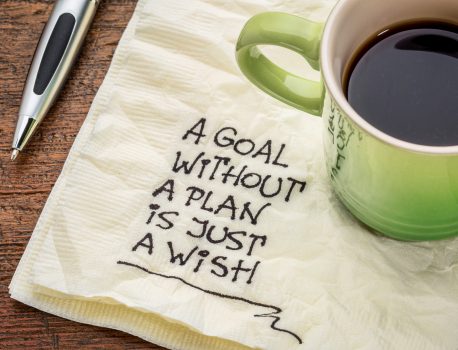To set a goal we need to pause and put some thought into what we are trying to accomplish, who we want to be, what we want to do in the future. Often we are too busy with the here and now, just trying to stay afloat, and do not take the time to think and define what we want for our future.
Sometimes we know what we want, but we do not know how to get there. Setting goals can help us break down a big task, a dream, into smaller more doable steps.
Research has shown that goal setting does lead to more successful outcomes.
In a 1979 well known Harvard Business Study, Harvard’s MBA Program graduates were asked a simple question:
“Have you set clear, written goals, for your future and made plans to accomplish them?”
They found that:
- 84% had no specific goals at all
- 13% had goals but they were not written down
- 3% had clear, written goals and plans to accomplish them
In 1989, the interviewers interviewed the same graduates again and found:
- The 13% of the class who had goals were earning, on average, twice as much as the 84 % who had no goals at all.
- The 3% who had clear, written goals were earning, on average, ten times as much as the other 97 percent put together.
Take the time to think about your future. Where would you like to be in 5, 3, 1 year? Can’t think that far? What about in the next 3 months?
Try to work backwards (watch the webinar: How to Set and Achieve Any Goal, to learn more about goal setting in general, and specifically about reverse engineering your goals) and set yourself explicit and achievable goals for this week.
Choose something to focus on for the next 7 days. Write down 3 steps you can take to move you closer to achieving your goal.
For other perspectives on goal setting, listen to these Ted Talks:
William Barr: “Four keys for setting and achieving goals”.
Dutta Satadip: “Rethink. Redefine. Recreate.”
Ready? Think about where you would like to be in the future. Put a plan together, and Monday, yes this Monday, can be your start of the new you.


